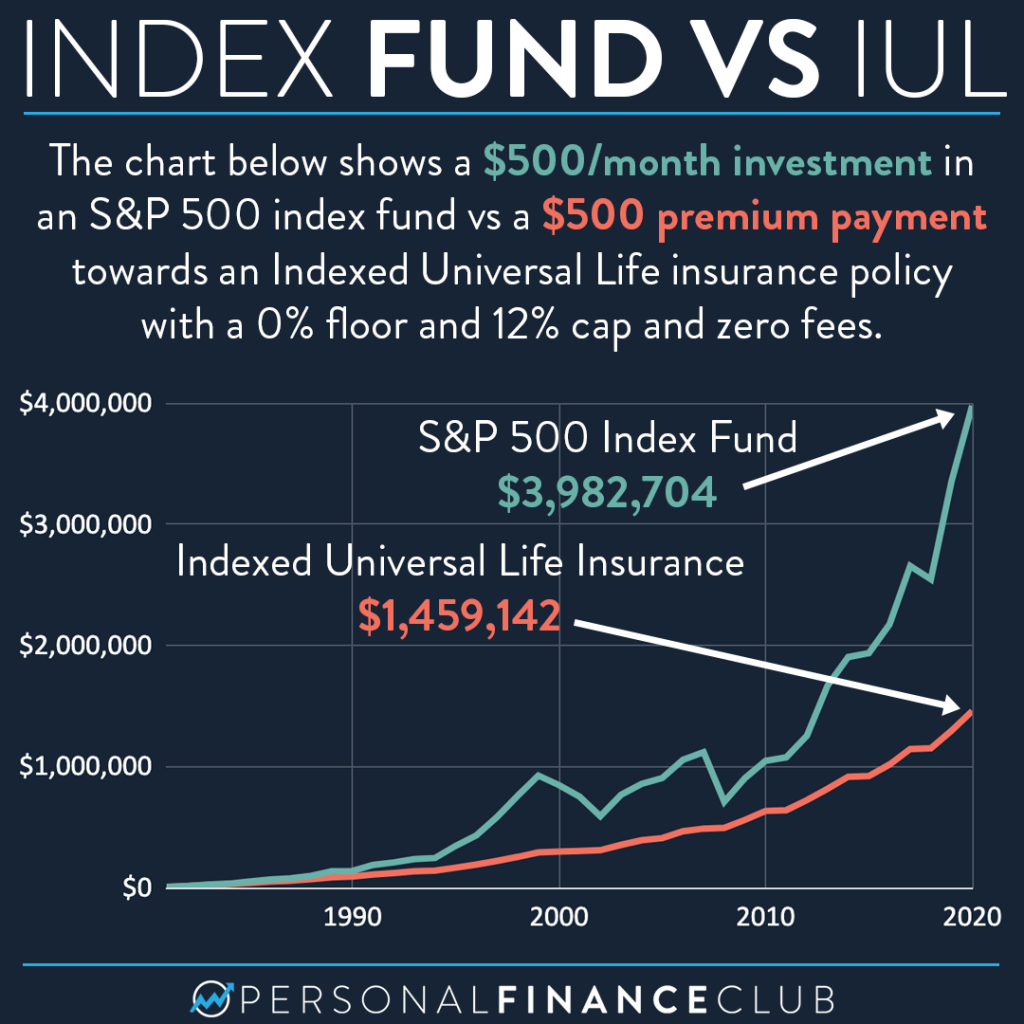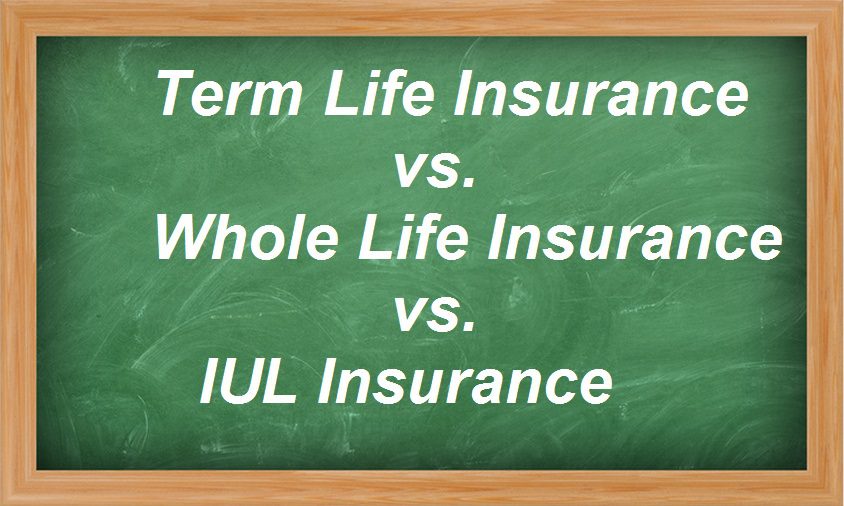All Categories
Featured
Table of Contents
Indexed Universal Life (IUL) insurance policy is a sort of long-term life insurance policy policy that incorporates the attributes of conventional universal life insurance coverage with the capacity for money value development linked to the performance of a stock market index, such as the S&P 500 (Indexed Universal Life investment). Like other kinds of long-term life insurance, IUL offers a survivor benefit that pays out to the beneficiaries when the insured dies
Cash worth buildup: A portion of the costs payments enters into a cash value account, which gains rate of interest gradually. This money worth can be accessed or obtained versus during the insurance holder's life time. Indexing choice: IUL plans offer the opportunity for cash value development based upon the performance of a stock market index.
Is Indexed Universal Life Account Value worth it?
Just like all life insurance policy products, there is also a collection of risks that insurance holders need to understand prior to considering this sort of policy: Market danger: Among the main threats related to IUL is market threat. Because the cash money worth development is connected to the efficiency of a securities market index, if the index chokes up, the cash worth might not grow as anticipated.

Sufficient liquidity: Insurance holders need to have a steady financial situation and fit with the exceptional repayment demands of the IUL policy. IUL enables versatile premium repayments within certain limitations, however it's vital to keep the policy to ensure it accomplishes its intended objectives. Passion in life insurance protection: People that need life insurance policy protection and an interest in cash money worth development may find IUL attractive.
Candidates for IUL need to be able to recognize the mechanics of the policy. IUL may not be the very best alternative for individuals with a high tolerance for market threat, those who prioritize affordable financial investments, or those with more prompt economic needs. Consulting with a qualified financial advisor who can offer customized advice is essential prior to considering an IUL plan.
All registrants will obtain a schedule invite and web link to sign up with the webinar through Zoom. Can not make it live? Register anyhow and we'll send you a recording of the presentation the next day.
Why should I have Iul Growth Strategy?
You can underpay or miss costs, plus you may be able to change your fatality advantage.
Cash value, along with possible development of that worth through an equity index account. An alternative to designate component of the money worth to a set rate of interest alternative.
Insurance policy holders can decide the percentage alloted to the taken care of and indexed accounts. The value of the picked index is videotaped at the beginning of the month and compared with the value at the end of the month. If the index raises throughout the month, interest is contributed to the cash value.
The resulting rate of interest is added to the money worth. Some plans determine the index acquires as the amount of the modifications for the duration, while various other plans take a standard of the daily gains for a month.
Why do I need Guaranteed Indexed Universal Life?
The price is set by the insurer and can be anywhere from 25% to more than 100%. (The insurance firm can additionally transform the take part rate over the lifetime of the plan.) If the gain is 6%, the participation rate is 50%, and the existing cash money worth overall is $10,000, $300 is added to the money value (6% x 50% x $10,000 = $300).
There are a variety of benefits and drawbacks to think about before buying an IUL policy.: Similar to basic universal life insurance policy, the policyholder can boost their premiums or lower them in times of hardship.: Amounts attributed to the cash value expand tax-deferred. The cash money value can pay the insurance costs, allowing the insurance policy holder to lower or stop making out-of-pocket costs repayments.
What happens if I don’t have Indexed Universal Life Retirement Planning?
Many IUL policies have a later maturity day than various other sorts of global life plans, with some finishing when the insured reaches age 121 or more. If the insured is still to life at that time, plans pay out the fatality advantage (but not typically the money value) and the profits might be taxable.

: Smaller sized plan face worths don't supply much benefit over regular UL insurance coverage policies.: If the index goes down, no rate of interest is credited to the cash money worth. (Some policies use a low ensured price over a longer duration.) Various other financial investment cars make use of market indexes as a standard for efficiency.
With IUL, the objective is to make money from higher activities in the index.: Since the insurance provider only gets options in an index, you're not directly spent in supplies, so you don't profit when firms pay rewards to shareholders.: Insurers charge costs for managing your cash, which can drain pipes money value.
How do I apply for Indexed Universal Life Protection Plan?

For many people, no, IUL isn't far better than a 401(k) - Indexed Universal Life companies in terms of conserving for retired life. The majority of IULs are best for high-net-worth people seeking methods to reduce their gross income or those that have maxed out their various other retired life options. For everybody else, a 401(k) is a far better financial investment vehicle because it does not carry the high fees and costs of an IUL, plus there is no cap on the amount you might earn (unlike with an IUL policy)
While you might not shed any kind of cash in the account if the index drops, you will not earn interest. If the marketplace transforms favorable, the profits on your IUL will certainly not be as high as a typical financial investment account. The high cost of costs and charges makes IULs costly and substantially less budget-friendly than term life.
Indexed universal life (IUL) insurance supplies cash value plus a survivor benefit. The cash in the cash money worth account can earn passion via tracking an equity index, and with some usually designated to a fixed-rate account. Nonetheless, Indexed global life policies cap just how much money you can gather (usually at less than 100%) and they are based on a possibly unstable equity index.
Why do I need Tax-advantaged Iul?
A 401(k) is a far better alternative for that purpose because it doesn't lug the high charges and premiums of an IUL policy, plus there is no cap on the quantity you may gain when spent. Most IUL plans are best for high-net-worth individuals seeking to reduce their gross income. Investopedia does not supply tax obligation, investment, or monetary services and guidance.
If you're taking into consideration acquiring an indexed global life policy, first speak to a monetary expert who can describe the subtleties and give you an exact image of the actual possibility of an IUL policy. Make certain you comprehend exactly how the insurance firm will calculate your rate of interest, profits cap, and costs that might be evaluated.
Latest Posts
Universal Life Cash Surrender Value
Benefits Of Iul Insurance
Nationwide Yourlife Indexed Ul Accumulator